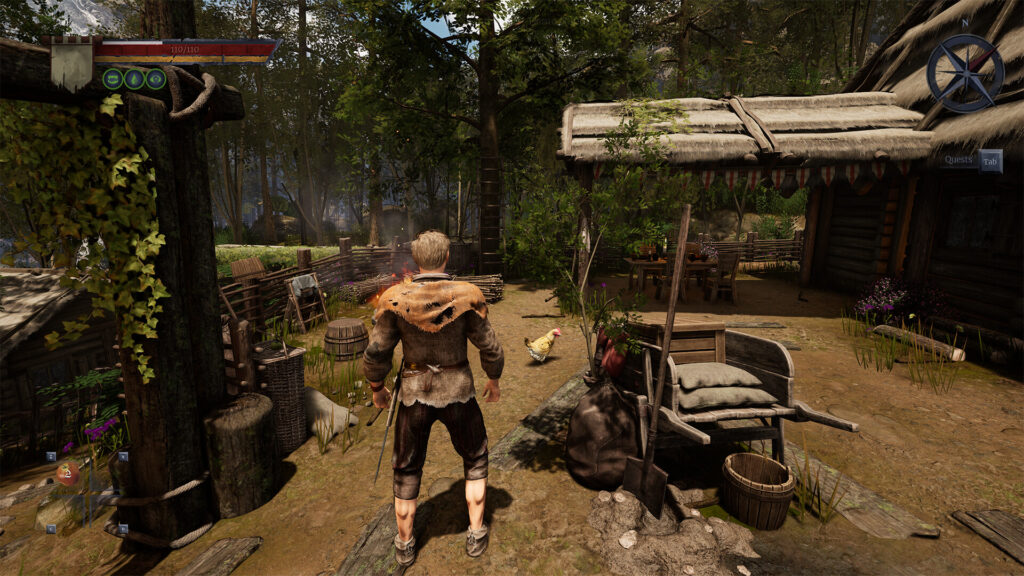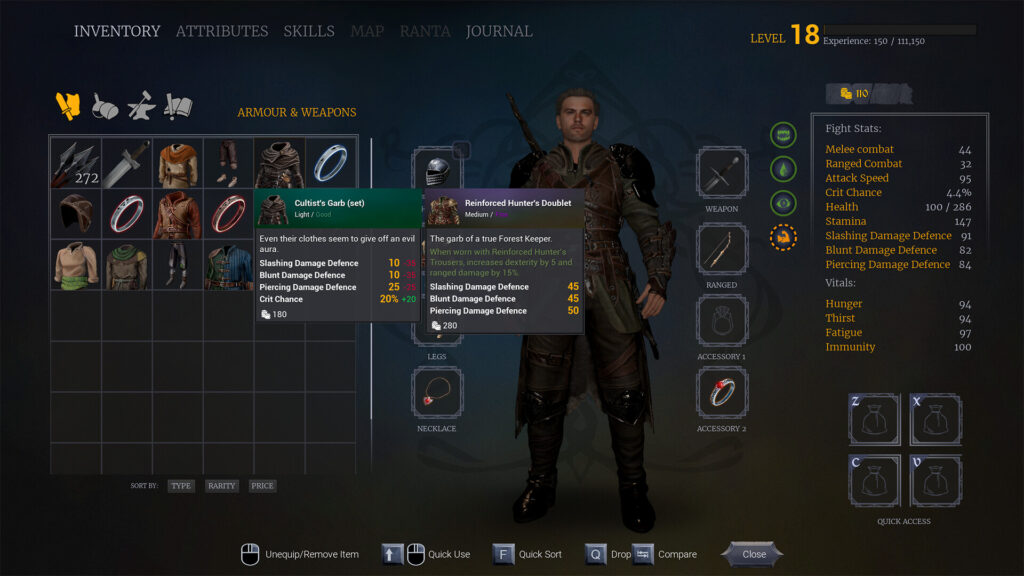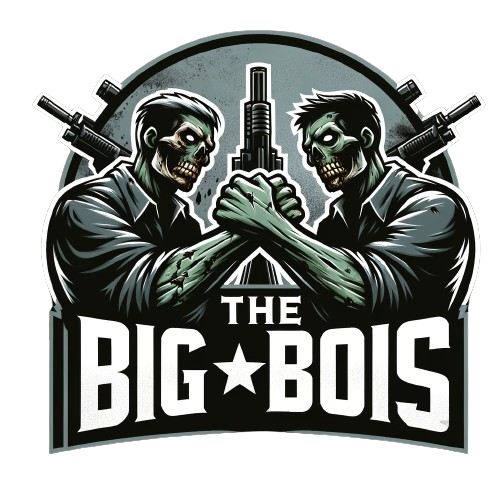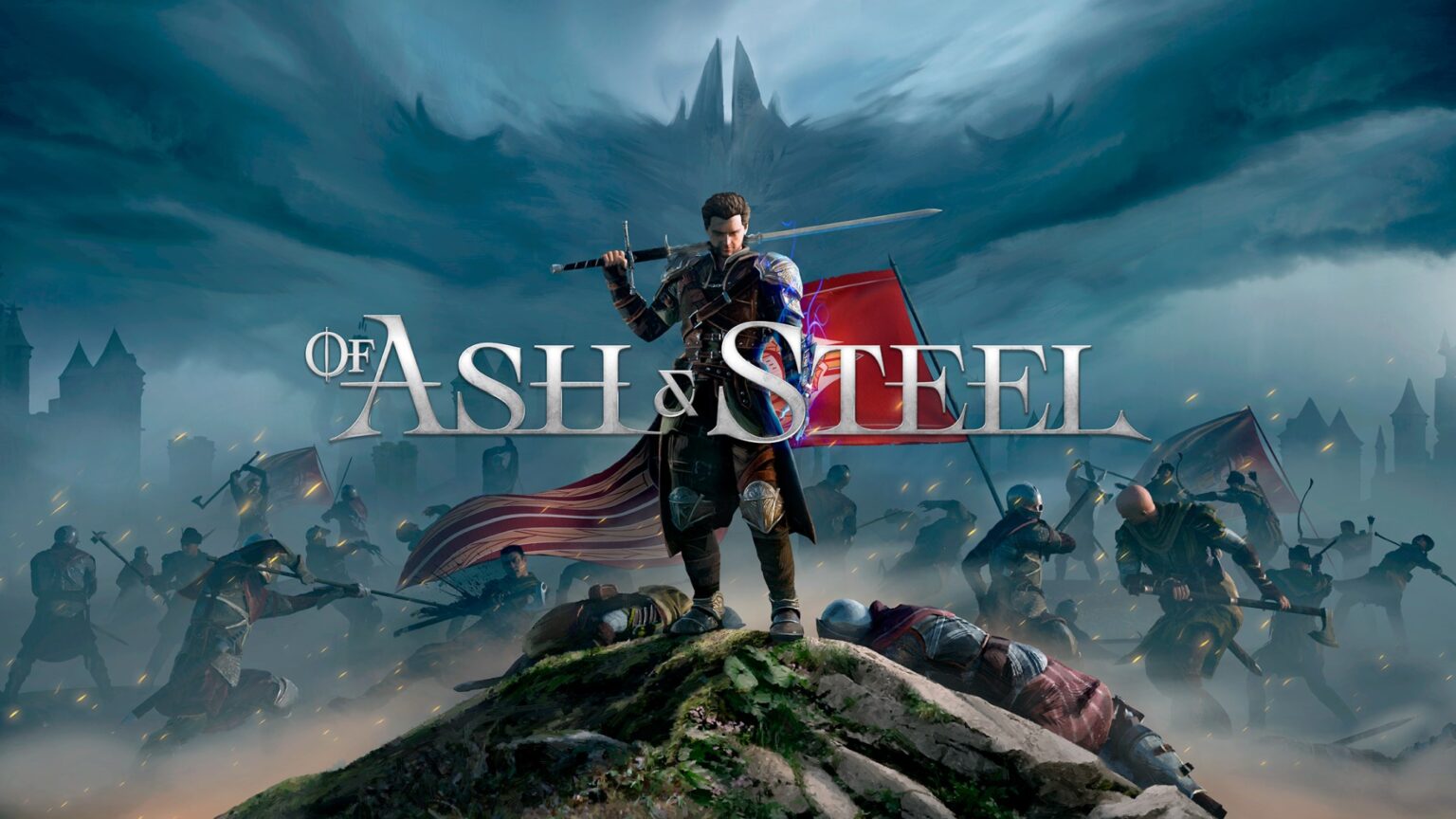In an era where modern RPGs are cluttered with GPS trails, floating objective markers, and “Chosen One” narratives that treat you like a god from the opening cutscene, Of Ash and Steel is a rude, refreshing awakening. Developed by Fire & Frost, this open-world RPG is a love letter to the “Euro-jank” classics of the early 2000s—games like Gothic and Risen—where the world didn’t care about you, and survival was earned, not given.
You play as Tristan, a cartographer who survives a shipwreck only to wash up on the dangerous island of Greyhaft. You don’t start as a warrior. In fact, the game introduces you while you are literally hunched over, vomiting. From there, it’s a steep, unforgiving climb to power in a world that refuses to explain itself.

“A nostalgic blend of classic RPG vibes with modern flair. Dive into a rich open world, master combat, and carve your path in this harsh, beautiful realm.”
If you are tired of games playing themselves for you, Of Ash and Steel is the antidote. But be warned: the medicine tastes bitter before it starts to work.
The Irony of the Cartographer
The most striking feature of Of Ash and Steel is its navigation—or lack thereof. There are no mini-maps, no dotted lines on the ground, and no floating icons above quest givers. You are given directions like “follow the path past the abandoned village,” and you are expected to use your eyes.
There is a cruel irony here: Tristan is a cartographer by trade, yet you will spend half your time helplessly lost. While this creates a deeply immersive sense of exploration, it can also be frustrating. The compass is basic, and the world map (once you finally unlock it) lacks the utility modern gamers are used to. It’s a system that demands your full attention, rewarding curiosity but punishing impatience.

From Vomit to Victory: The Combat Loop
The combat system is deliberately clunky. You are not Geralt of Rivia; you are a map-maker with a rusty sword. Early fights are desperate struggles where managing stamina and timing parries is the difference between life and a reload screen.
However, this clunkiness is justified by the progression. As you level up attributes like Strength and Dexterity, and unlock skills across the Survival, Craftsmanship, and War trees, Tristan actually evolves. You feel the transition from a stumbling survivor to a capable warrior. The crafting system is a highlight, allowing you to forge gear that is often better than what you can buy, rewarding you for doing things the hard way.
Friction in the Systems
While the old-school philosophy is charming, some design choices feel less “hardcore” and more “tedious.” Unlocking skills is a major pain point. Not only do you need the attribute points, but you also need to find specific trainer NPCs (who aren’t marked on a map) and pay exorbitant amounts of gold. In the early game, this feels counterintuitive and overly restrictive.
Furthermore, the narrative and dialogue, while serviceable, lack polish. Tristan is a bit bland, and there are moments where quest logic breaks—like an NPC handing you a reward for a task you haven’t technically discussed yet. The voice acting and animations also carry that stiff, indie RPG jank that may turn off players used to AAA production values.
Pros & Cons
| Pros | Cons |
| ✅ Zero-to-Hero Progression: You genuinely feel your character grow from weak to powerful. | ❌ Tedious Navigation: The lack of map markers is immersive but can lead to frustrating wandering. |
| ✅ No Hand-Holding: Respects the player’s intelligence and encourages organic exploration. | ❌ High Friction Skill System: Finding trainers and paying huge gold fees slows progression too much. |
| ✅ Deep Crafting: Making your own gear feels meaningful and rewarding. | ❌ Clunky Early Combat: While intentional, the early game combat feels stiff and awkward. |
| ✅ Nostalgic Atmosphere: Perfectly captures the vibe of classic 2000s RPGs like Gothic. | ❌ Stiff Presentation: Voice acting and animations are a bit wooden and dated. |
| ✅ Impactful Choices: Dialogue options and stats actually change quest outcomes. | ❌ UI Lacks Info: It’s hard to identify important NPCs or locations at a glance. |
Of Ash and Steel: This is a game for a very specific type of player. If you miss the days when RPGs were dangerous mysteries to be solved rather than checklists to be completed, this is a hidden gem waiting for you. It captures the soul of the "Euro-RPG" perfectly—rough edges and all. However, if you prefer fluid combat, clear objective markers, and a smooth difficulty curve, this island might just chew you up and spit you out. It’s a flawed, fascinating, and rewarding journey for those patient enough to walk the path. – Obsidian


